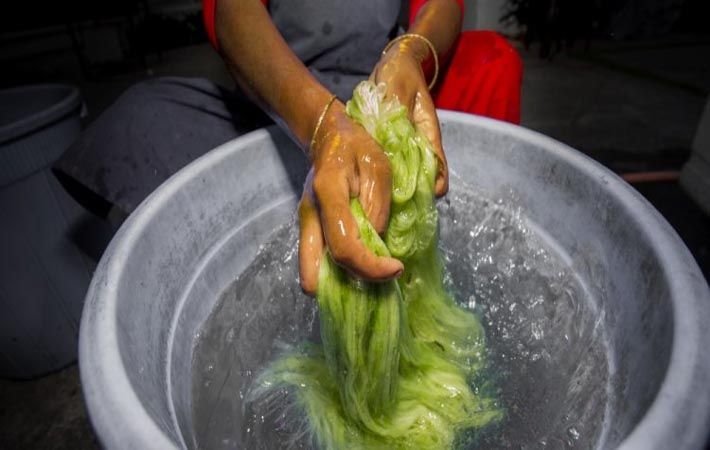Enough usable agricultural residue streams from farming in South and South-east Asia are available for producing natural fibre textiles at scale, according to a new study conducted by US-based Institute for Sustainable Communities (ISC) and World Resources Institute (WRI) and the Netherlands-based Wageningen University and Research (WUR).
Commissioned by the Laudes Foundation, the study titled 'Spinning Future Threads', found large quantities of agricultural residues in eight countries. The researchers looked at more than 40 crops to find the most suitable for fashion fibre production.Enough usable agricultural residue streams from farming in South and South-east Asia are available for producing natural fibre textiles at scale, according to a new study conducted by US-based Institute for Sustainable Communities (ISC) and World Resources Institute (WRI) and the Netherlands-based Wageningen University and Research (WUR).#
The study proposes a roadmap for collaboration and innovation for fashion and food industries to come together to enable this alternative feedstock to help the fashion industry build long-term sustainable value-chains.
Global fibre production has reached well over 100 million tonne per year in 2019 and is expected to rise even further. Agricultural residues can potentially be blended with man-made and natural fibres to produce innovative materials called agro-residue based textile fibres, according to a press release from WUR.
The fibres are known to have similar characteristics to existing materials in the fashion industry. The research focused on South Asia and Southeast Asia, because these regions are known for both their production of crop waste and textiles.
“To reduce its growing dependence on fossil fuels, the fashion industry must prioritise and accelerate its transition to a circular and regenerative system,” said Anita Chester, head of materials, Laudes Foundation.
“The textile industry is in need of more sustainable and renewable feedstocks in order to improve its current negative impact on the climate,” said Paulien Harmsen, senior scientist at Wageningen University & Research.
Producing agro-residue based textile fabrics using the feedstocks identified by this study also would create important societal benefits. “Agro-residue based fibres are promising innovations that could unlock the next fashion revolution,” added Vivek P. Adhia, India country director, ISC.
“It’s time has come, reaping triple benefits of sustainable fashion, improved rural livelihoods and reduced environmental impacts. Building critical links between industry and farming communities will help facilitate this transition more quickly. It is important to design the system right, upfront, addressing considerations on reliable feedstock availability, robust local value chains, customizing technology fit-for-purpose and advancing consumer awareness,” he added.
Fibre2Fashion News Desk (DS)
